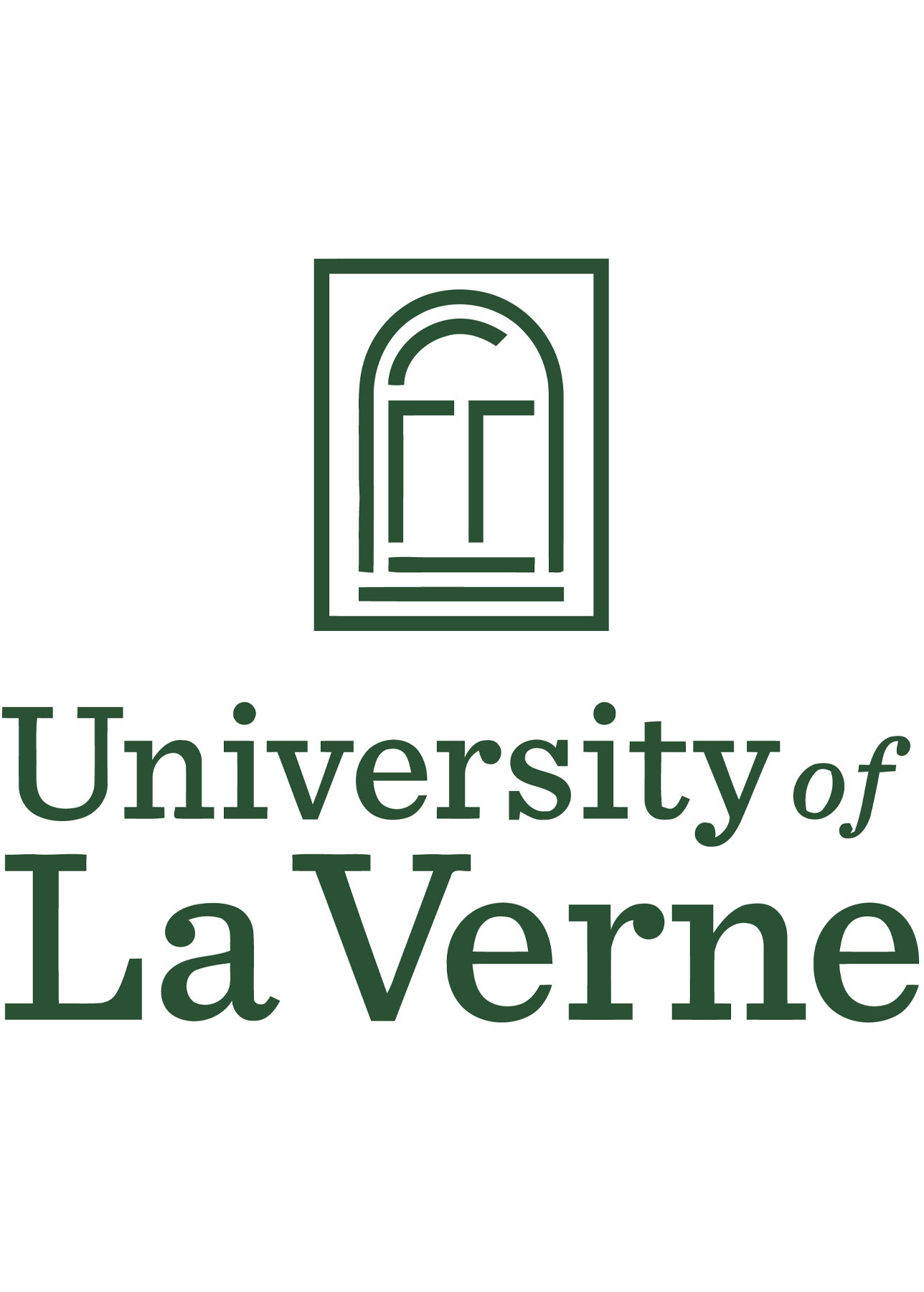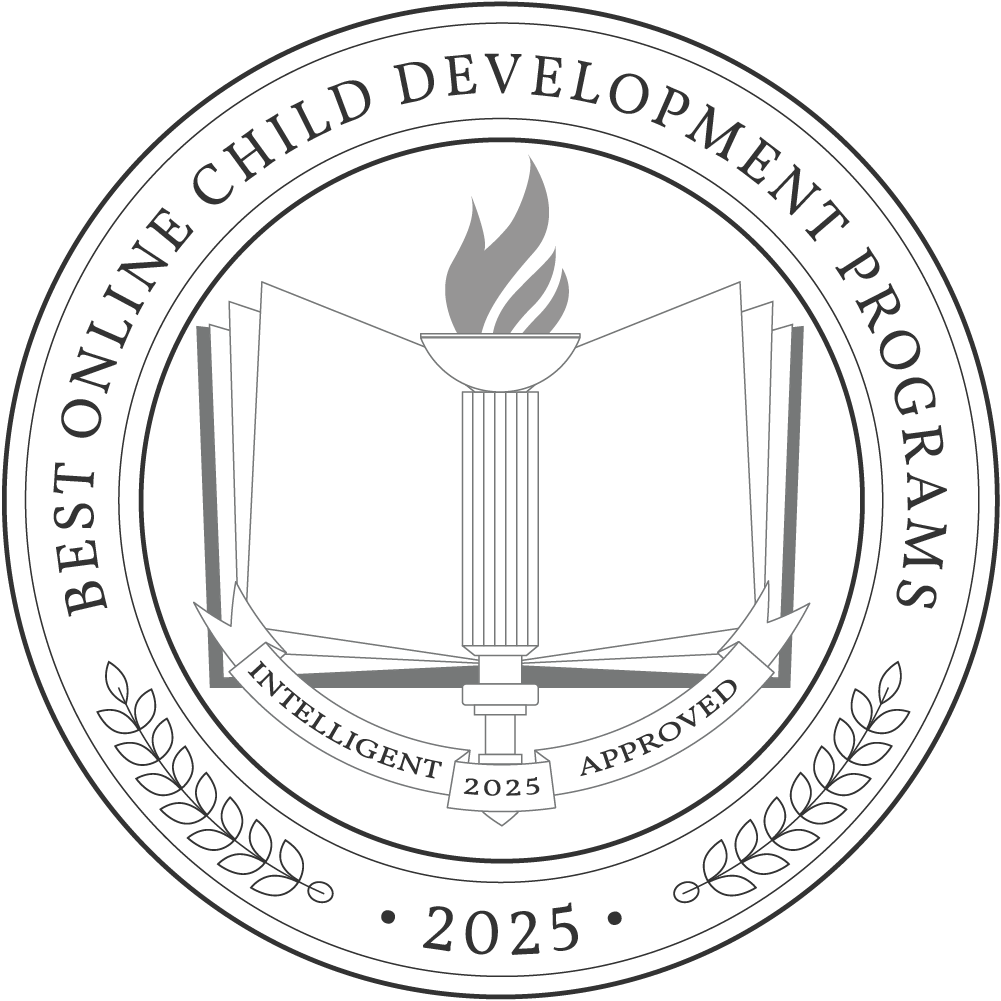Students enrolled in an online degree in child development program will prepare for a number of jobs in an array of high-demand fields: early childhood education, intervention, psychology, public policy, research, advocacy, sports, social work, and speech-language pathology. Degrees in this field are available at the associate, bachelor’s, and master’s levels and provide the necessary training for graduates to work with children at all stages of development in various settings.
The cost of an online child development degree program will vary. The average annual tuition for undergraduate programs is $7,998 at public schools and $34,923 at private schools, and the average annual tuition for graduate programs is $12,596 at public schools and $28,017 at private schools.
How to Choose an Online Child Development Degree Program
Choose your area of study
Students should start by considering their professional goals to ensure they select a program that will prepare them for their desired career trajectory.
First-time college students can consider an Associate of Arts (AA), Associate of Science (AS), Bachelor of Arts (BA), or Bachelor of Science (BS) in child development. Professionals who are looking to build on existing experience or prepare for a career change can explore Master of Arts (MA) or Master of Science (MS) degrees.
Many programs will allow you to select a concentration and focus your studies on a particular niche in this field, such as:
- Individual and family development
- Language development and emergent literacy
- Applied research methods
- Infants and toddlers
- Children’s literature
Research schools and programs
You should only apply to institutions that have been approved by a DOE-recognized regional accrediting organization, such as the New England Commission of Higher Education or Northwest Commission on Colleges and Universities. These organizations evaluate schools to ensure they provide students with a high-quality education. Those who attend a school that isn’t regionally accredited may be unable to access financial aid or transfer credits to another institution if needed.
Ideally, your online childhood development program will also be accredited by a respected industry group like the National Association for the Education of Young Children.
Other things to consider when researching schools are the faculty, hands-on learning experiences like internships, and support services for online students.
To learn more about any schools that you’re interested in, you can visit the school’s website, contact an admissions counselor, follow the school on social media, or attend an in-person or virtual open house.
Prepare for tests and applications
An admission counselor can explain the school’s application procedures and requirements and answer any questions about the process. Application demands differ from school to school, so it’s also a good idea to maintain a spreadsheet or checklist with requirements and due dates.
Generally speaking, students will have to submit the following:
- Completed application and fees
- Official transcripts from all schools previously attended
- Letters of recommendation from teachers, employers, or community leaders
- A personal statement explaining why you are a good fit for the program
- A resume or CV highlighting jobs, experience, extracurricular activities, and positions of leadership
Undergraduate students may be required to submit SAT or ACT scores, while graduate programs may require submission of GRE scores. Additional application requirements for graduate students may include a bachelor’s degree in a related field, specific undergraduate coursework, or a minimum undergraduate GPA.
Select your program
Students should review and compare all information they’ve gathered about schools before selecting the one(s) to which they’ll apply. There’s no right or wrong number of schools to apply to; some students submit multiple applications to increase the odds of acceptance, while others focus on a single program based on their particular needs and interests. Most schools charge application fees, so applying to a large number of schools can get pricey.
Before making your final decision, review your needs and goals again. Do you plan to attend school full-time or part-time? Do you want your program to be as online as possible, or are you fine with a hybrid program that has a fair amount of in-person requirements? Some programs offer asynchronous courses, which can be completed at your own pace, while others only offer synchronous courses, which involve remotely attending lectures and completing assignments at the same time as other students — which of these two online learning formats do you prefer? Your school should accommodate your scheduling needs and learning preferences.
Determine how you’ll pay for your degree
Get in touch early with the school’s financial aid office to help you understand the cost of the program and what financial aid resources are available. If you haven’t yet completed the Free Application for Federal Student Aid (FAFSA), now is a good time to fill out this form. Schools use the information on the FAFSA to determine eligibility for institutional need-based aid like scholarships and grants, federal student loans, and work-study funding.
Students should also explore other avenues of funding, including merit-based scholarships and grants from external organizations, employer tuition assistance benefits, and military discounts and GI Bill benefits, if applicable.
Top 18 Best Online Child Development Degree Programs
Institution Type
Status
- Intelligent Score
- Alphabetically By University Name
- Acceptance Rate
- Enrollment
- In-state Graduate Tuition
- Out-of-state Graduate Tuition
- In-state Undergraduate Tuition
- Out-of-state Undergraduate Tuition

Appalachian State University
Intelligent Score: 99.23In-state: $4,242
Out-of-state: $19,049
In-state: $4,839
Out-of-state: $4,839
SAT: 1070-1240
ACT: 22-27
Resident: $177
Non-Resident: $911
Online
Southern Association of Colleges and Schools Commission on Colleges
$120

Central Michigan University
Intelligent Score: 98.68In-state: $12,296
Out-of-state: $22,881
In-state: $14,223
Out-of-state: $14,223
SAT: 1000-1210
ACT: 20-26
Central Michigan University’s Early Childhood Development and Learning major as part of a Bachelor of Arts, Bachelor of Applied Arts, or Bachelor of Science degree, is a four-year program that prepares you for a career in early childhood education. The curriculum uses training guidelines set by the National Association for the Education of Young Children. You get a chance to apply your knowledge in the campus’s Child Development and Learning Laboratory, where you work directly with three- and four-year-olds. Meanwhile, you also get to obtain first-hand experience in local field placements. Program highlights include a poverty simulation, where you experience what it’s like to live as a family in need or work with limited resources, and the student groups Child Life Student Association and Reimagining Early Childhood (REaCh).
458.0
Online, On-Campus
National Association for the Education of Young Children
120-124

Point Loma Nazarene University
Intelligent Score: 98.16In-state: $37,600
Out-of-state: $37,600
In-state: $11,880
Out-of-state: $11,880
SAT: 1100-1290
ACT: 23-28
Point Loma Nazarene University’s (PLNU) Bachelor of Arts in Child Development is a full four-year, 120-credit degree program that can be completed online anywhere in the world or on community college campuses in and around San Diego, California. As a Christian university, PLNU emphasizes holistic development and seeks to support you as you grow not just as a student but as a person. This approach is particularly well suited to the study of child development because the field takes a similarly holistic approach. PLNU offers extensive mentorship and career counseling, and has multiple pathways for helping you complete your degree if you’ve already earned some credits elsewhere.
560.0
Online, Hybrid
Western Association of Schools and Colleges Senior College and University Commission
$120

Missouri State University
Intelligent Score: 97.25In-state: $6,840
Out-of-state: $15,510
In-state: $5,436
Out-of-state: $5,436
SAT: 1020-1220
ACT: 21-27
290.0
Online
Highler Learning COmmission
$120

University of Southern Mississippi
Intelligent Score: 96.65In-state: $8,786
Out-of-state: $10,786
In-state: $8,786
Out-of-state: $8,786
SAT: N/A
ACT: 19-26
417.0
Online, On-Campus
Southern Association of Colleges and Schools Commission on Colleges
$120

Fresno Pacific University
Intelligent Score: 96.13In-state: $32,954
Out-of-state: $32,954
In-state: $14,940
Out-of-state: $14,940
SAT: 930-1110
ACT: 16-22
550.0
Online, On-Campus
Western Association of Schools and Colleges Senior College and University Commission
$120

CSP Global
Intelligent Score: 94.62In-state: $32,660
Out-of-state: $32,660
In-state: $9,090
Out-of-state: $9,090
SAT: 990-1180
ACT: 19-25
420
Online, On-Campus
Council for the Accreditation of Educator Preparation
$120

Western Michigan University
Intelligent Score: 93.11In-state: $12,094
Out-of-state: $15,118
In-state: $16,360
Out-of-state: $16,360
SAT: 1010-1220
ACT: 20-27
604.0
Online, On-Campus
Highler Learning COmmission
$122

West Virginia University
Intelligent Score: 92.71In-state: $8,976
Out-of-state: $25,320
In-state: $10,134
Out-of-state: $10,134
SAT: 1030-1230
ACT: 21-27
451.0
Online, Hybrid
Highler Learning COmmission
$120

University of Memphis
Intelligent Score: 91.07In-state: $8,208
Out-of-state: $12,048
In-state: $9,216
Out-of-state: $9,216
SAT: 990-1200
ACT: 19-26
431.0
Online
Southern Association of Colleges and Schools Commission on Colleges
$120

Oklahoma State University
Intelligent Score: 90.25In-state: $5,357
Out-of-state: $20,877
In-state: $5,531
Out-of-state: $5,531
SAT: 1020-1250
ACT: 21-28
435.0
Online
Highler Learning COmmission
$120

West Virginia University at Parkersburg
Intelligent Score: 88.46In-state: $8,976
Out-of-state: $25,320
In-state: $10,134
Out-of-state: $10,134
SAT: 1030-1230
ACT: 21-27
Rersident: $180 - $249
Non-Resident: $376 - $401
Online
Highler Learning COmmission
$120

Southeast Missouri State University
Intelligent Score: 88.46In-state: $6,779
Out-of-state: $12,951
In-state: $5,373
Out-of-state: $5,373
SAT: N/A
ACT: N/A
285.0
Online
Highler Learning COmmission
$120

University of West Alabama
Intelligent Score: 87.93In-state: $9,100
Out-of-state: $18,200
In-state: $6,678
Out-of-state: $6,678
SAT: N/A
ACT: 17-22
325.0
Online
Southern Association of Colleges and Schools Commission on Colleges
$123

Southeastern Oklahoma State University
Intelligent Score: 87.69In-state: $6,240
Out-of-state: $14,880
In-state: $4,716
Out-of-state: $4,716
SAT: 880-1090
ACT: 17-23
Resident: $220
Non-Resident: $307
Online
Highler Learning COmmission
$124

Point University
Intelligent Score: 87.46In-state: $20,700
Out-of-state: $20,700
In-state: $16,200
Out-of-state: $16,200
SAT: 910-1080
ACT: 17-21
410.0
Online
Southern Association of Colleges and Schools Commission on Colleges
$120

University of La Verne
Intelligent Score: 86.30In-state: $44,700
Out-of-state: $44,700
In-state: $14,346
Out-of-state: $14,346
SAT: 960-1150
ACT: 17-23
665.0
Online
Western Association of Schools and Colleges Senior College and University Commission
$120

Bacone College
Intelligent Score: 82.80In-state: NA
Out-of-state: NA
In-state: NA
Out-of-state: NA
SAT: 868-1008
ACT: 15-19
400.0
Online
Highler Learning COmmission
$126
How We Rank Schools
This list focuses on online degree programs in child development and related fields. These programs are available at nonprofit, accredited institutions, either public or private, with high standards of quality for postsecondary education. We reviewed fully online and in-person/online hybrid programs.
We evaluated each degree program on factors like tuition costs, faculty, reputation, student resources, and admission, retention, and graduation rates. We then calculated the Intelligent Score on a scale of 0 to 100. Read more about our ranking methodology.
We also compared our picks to a list of aggregated college rankings from reputable publications like U.S. News & World Report to simplify a student’s college search. We pored through these rankings so students don’t have to.
What Can You Expect From An Online Child Development Degree Program?
An online child development degree program will cover the theoretical knowledge and practical communication skills required to advance in child development careers and help children excel. Coursework draws from a variety of disciplines like psychology, biology, and sociology. Students examine social, medical, and cultural factors that might affect how children learn and develop. Some programs for childhood development concentrate on psychology and sociology. Other programs include assessment studies to observe and assess children. Several child development curricula concentrate on family dynamics.
Studying pedagogical theories and the practical application of these theories is central to the program. Students will learn distinct ways to advocate for families and children, communicate with a wide range of different people, and be community partners. Various online programs for child development require a capstone project, in which learners design and implement a project related to their area of study.
Potential courses you’ll take in an online child development degree program
- Language Development and Emergent Literacy. Students explore the cognitive process of language development. They learn tools for providing early literacy skills effectively.
- Child Social and Emotional Growth. Learners study the factors that influence and add to children’s interpersonal relationships and self-perception.
- Children’s Literature. This class teaches how to use children’s literature to fortify and develop a curriculum. Students learn how to create classroom communities that are culturally responsive.
- Applied Research. Enrollees polish research skills. Their goal is to solve problems faced by individuals or communities.
What Can I Do With an Online Child Development Degree?
Childcare experts like teachers, preschool directors, and behavior and speech specialists typically begin their careers with child development degrees. They use the foundations of child development learned in their degree programs daily to ensure that the children in their care are in a safe and nurturing environment.
Depending on your state’s credentialing requirements, an online associate or bachelor’s degree may position you for a teaching role in preschool or elementary classrooms. Advanced degrees, such as a master’s degree in child development, may elevate your future career to an educational specialist or school principal.
Career outlook
- Preschool teacher — Create curriculum aligned to developmental and educational standards, teach students life and school skills, and foster a supportive classroom environment for students to reach their milestones.
- Median annual salary: $37,130
- Projected employment growth (through 2032): 3%
- New jobs projected: 56,300
- Preschool and childcare director — Oversee a preschool or childcare center, including supervising teachers and childcare providers, communicating with parents, and connecting with children in their care.
- Median annual salary: $54,290
- Projected employment growth (through 2032): -3%
- New jobs projected: 4,600
- Speech language pathologist — Evaluate students’ needs regarding speech development and disorders, guide clients through exercises designed to help them reach their speech milestones, and assist and supervise colleagues through the evaluation process.
- Median annual salary: $89,290
- Projected employment growth (through 2032): 19%
- New jobs projected: 13,200
Online Child Development Degree Frequently Asked Questions
How do I apply to an online child development degree program?
A counselor from the school’s admissions office can answer any questions about application procedures, prerequisites, and deadlines. Begin early by making a list of the most important dates and deadlines.
Most schools accept applications and supplemental materials through their website. If you’re applying for an undergraduate program, find out if your school accepts the Common Application, which allows students to apply for multiple colleges with one application. Some materials, like transcripts and test scores, must be sent directly from the school or testing agency to be considered official.
How much does an online child development degree cost?
For undergraduate students, tuition averages $7,998 at public schools and $34,923 at private institutions. At the graduate level, public school students pay an average of $12,596, while private universities charge an average of $28,017. Students should also confirm their tuition rate with the school prior to enrolling.
Schools typically charge fees for things like technology, labs, and student support services. Students should also budget for learning materials such as books, computers, and internet access.
How long does it take to earn an online child development degree?
Program enrollment time can fluctuate depending on the student and the program. Each student’s pace and prior education can influence how long it takes to attain a degree. Usually, students enrolled in bachelor’s in child development degree programs finish in four years if they’re studying full-time. Part-time students may take five or six years to finish. At the graduate level, programs can take 1-3 years to finish, depending on enrollment status.
Other elements that could determine how long it takes to graduate include:
- A student with an associate degree in child development might transfer those previous credits to lessen the time to attain a bachelor’s degree
- Students carrying more credit hours every semester or enrolled in summer school might complete the program quicker
- Any type of experiential learning activity has the potential to lengthen enrollment time
Is a child development degree worth it?
Earning an online child development degree can help you advance your career in childcare while earning a higher salary. Although many jobs in childcare don’t require degrees past a high school diploma, higher-earning careers like elementary teachers and preschool directors need at least a bachelor’s degree.
In 2023, the median annual wage for education careers was $59,940. Careers in this field that pay higher than the median yearly wage require a bachelor’s degree, at minimum. Additionally, more specialized education careers — such as behavior specialists or speech-language pathologists — require you to earn a bachelor’s degree before pursuing a graduate degree in your field of interest.
Above all, a child development degree deepens your understanding of future students’ educational and developmental needs. Your degree program can teach you the latest trends in educational standards and developmental theory, as well as reinforce historical patterns in the field of childcare — making you a better teacher or childcare provider.
Read More about Child Development Degrees
Compare School Options
Related Degrees
- Physical Education
- Curriculum and Instruction
- Child Development
